Bohle River crocodile: Salty captured, removed in Townsville river
A large saltwater crocodile at the centre of a cruel poaching investigation was ‘stalking people’ including turf farm workers prior to its capture. See the latest photos.
Townsville
Don't miss out on the headlines from Townsville. Followed categories will be added to My News.
The large saltwater crocodile at the centre of a cruel poaching investigation was “stalking people” prior to its capture in the Bohle River, Townsville wildlife officers say.
The Department of the Environment, Tourism, Science, and Innovation (DETSI) confirmed that a 3.5m saltie, also known as an estuarine crocodile, had been caught in a department trap and was being removed from the Townsville river about 9.30am on Friday morning.
DETSI had earlier confirmed the croc was situated near a residential area and turf farm bordering on the Bohle River - the same area in which the animal was trapped overnight Thursday.
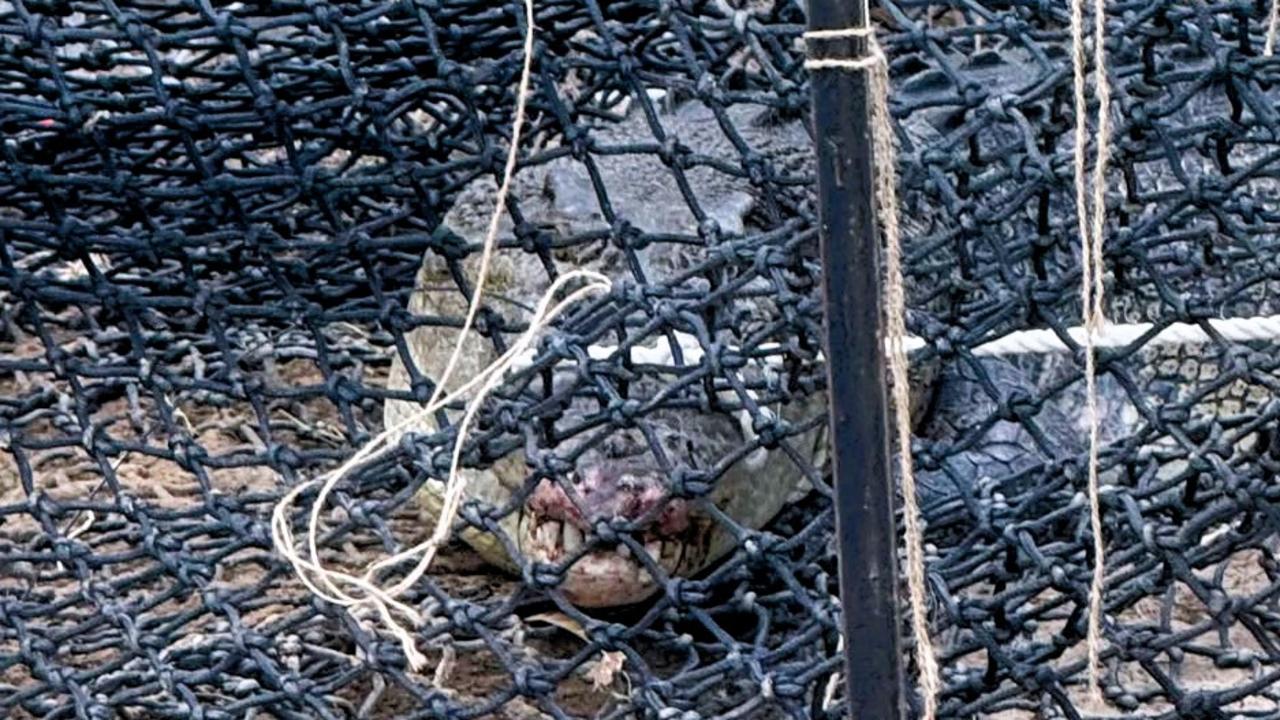
Speaking after relocating the captured croc to a holding pond in the DETSI’s Townsville depot, Queensland Parks and Wildlife Service senior wildlife officer Tony Frisby was pleased with the professional manner in which his team safely handled the troublesome reptile.
“The animal was first brought to our attention by a property owner who owns a turf farm on the banks of the Bohle River,” Mr Frisby said.
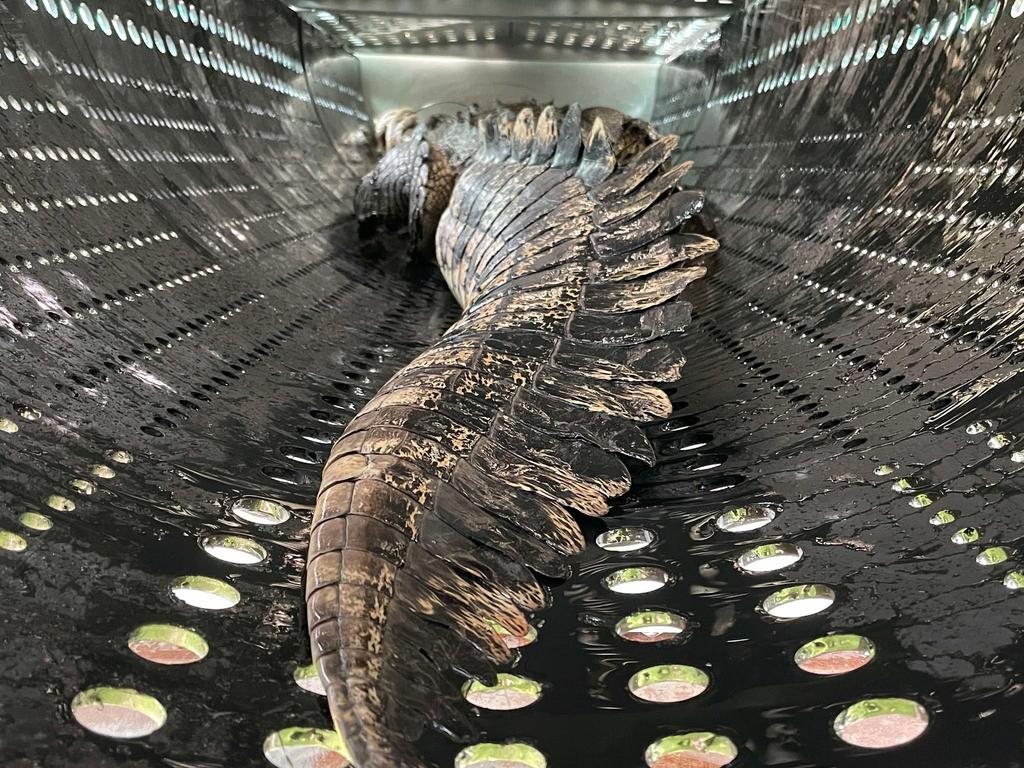
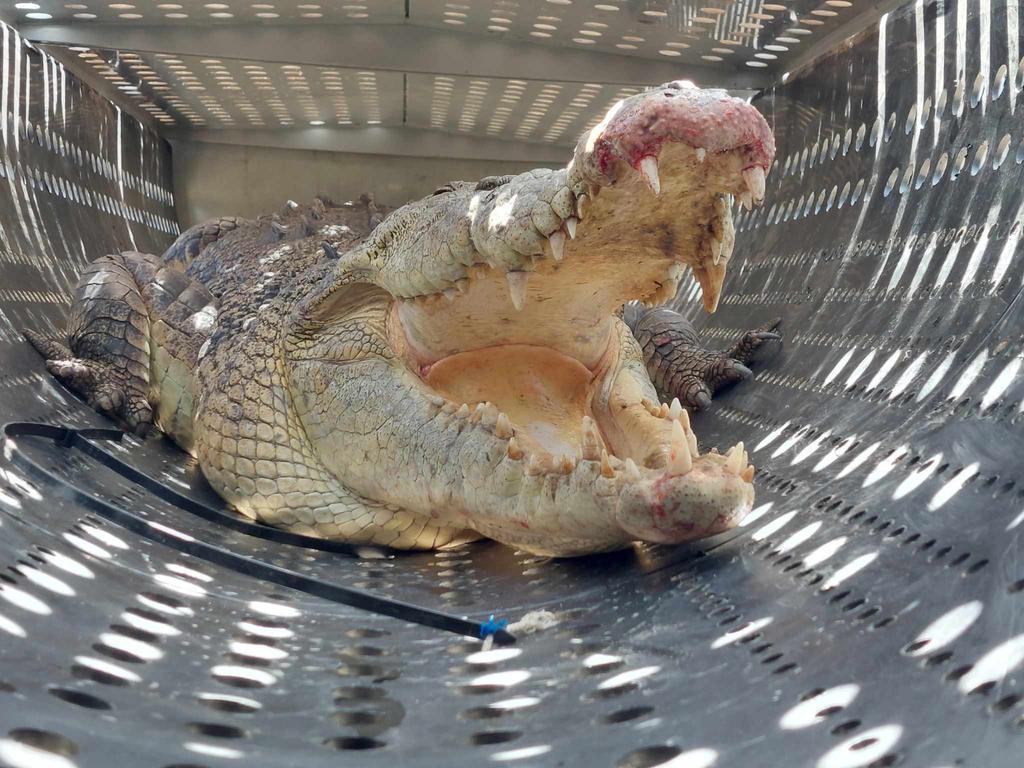
“It was actually stalking people and the turf farm owner had some problems with it when he was trying to whippersnip and mow the edges of the turf farm.
“My staff went to do an assessment on the animal and due to the size and location of the animal, (determined) that it was a threat to the public, so therefore the animal was targeted for removal.”
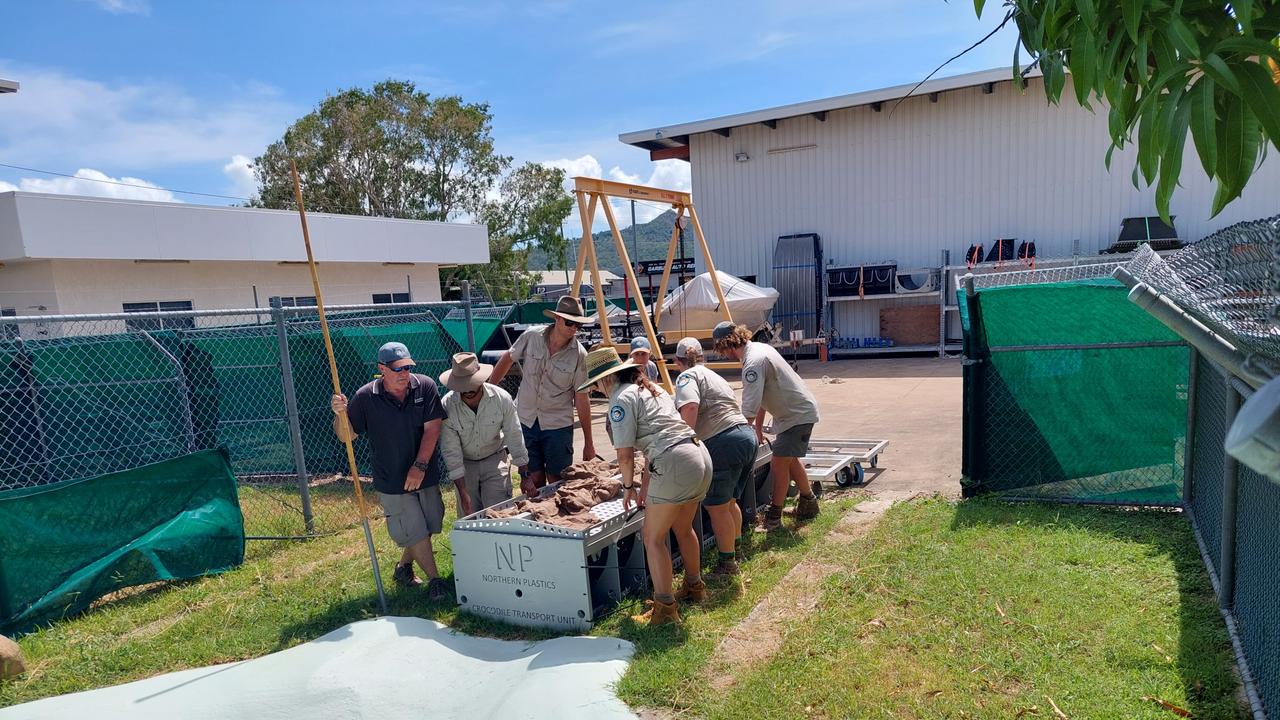
He said they first became aware of the threat about a fortnight ago, before deploying a gate trap on the riverbank two days ago, with the male croc captured on the second night.
“(Gate traps are) a fair bit more complex than our floating traps. Due to animal welfare issues, we made sure that we were there very early in the morning and the animal was placed in the shade,” he said.
“The execution of the extraction from the trap was done quite swiftly due to the high level of training of our staff.”
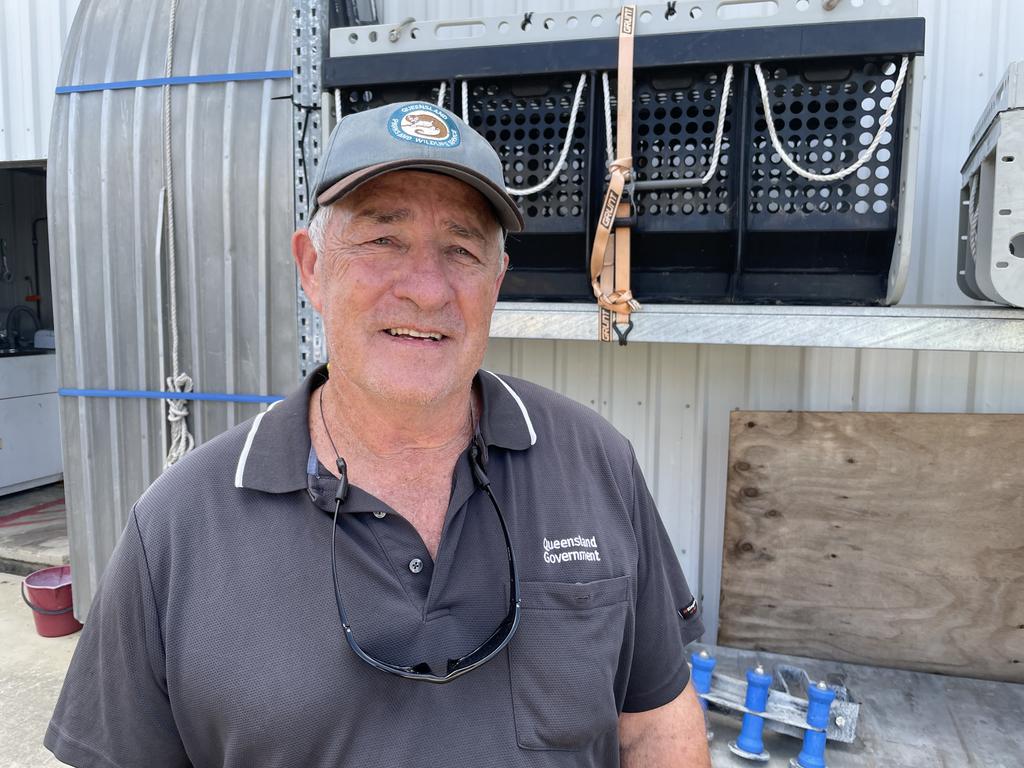
A veteran of 30 years in his role, Mr Frisby said they had captured an average number of crocodiles in the region since 2012.
“It’s a male animal. It’s got some excessive scarring on it that would probably indicate to me that it’s been fighting with other males through this breeding season,” he said.
“We’re in prime time nesting season now, they should be just about ready to hatch out, probably in February.
“Your safety is your own responsibility and living in North Queensland, you should expect a crocodile in every river and every system.”
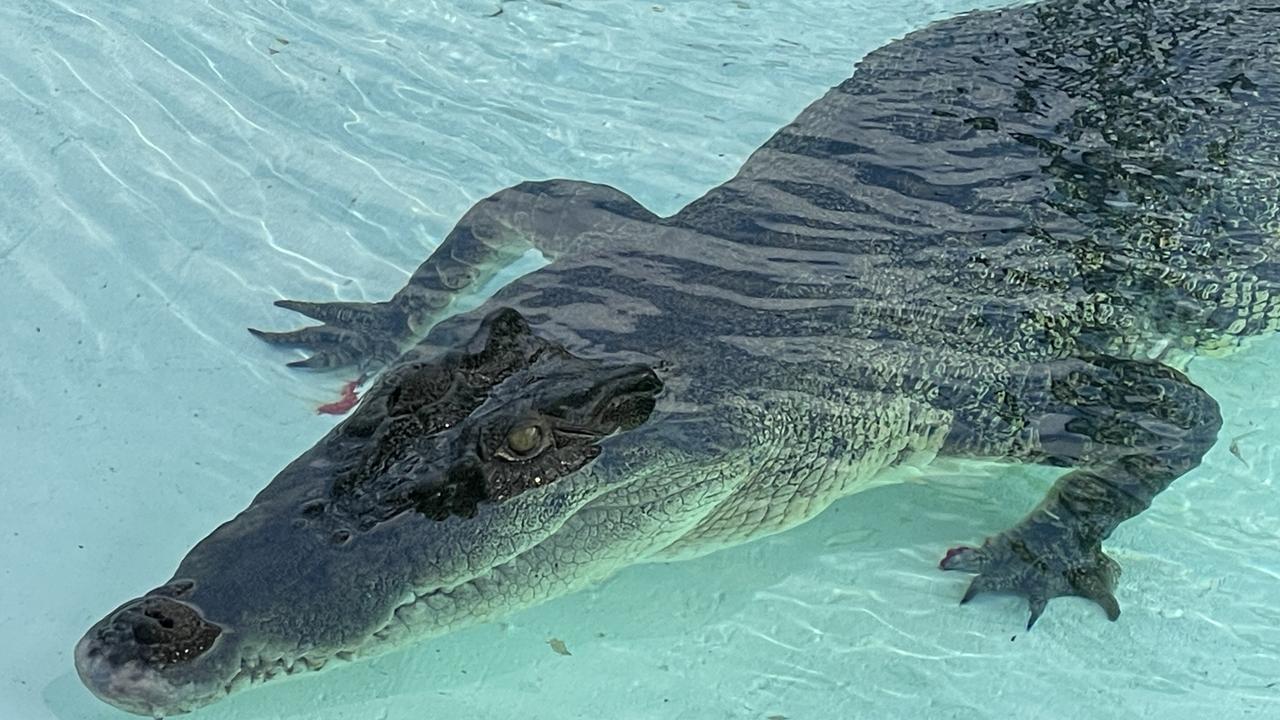
He said the discovery of a baited hook under the Little Bohle Bridge that was intentionally set to kill this crocodile was “most concerning”.
“It was found … about 150 meters from where we caught the animal. The department takes that very, very seriously, and there are quite excessive fines for doing so.
“We would encourage anyone with any information about poaching of any description, any native wildlife, to contact us.”
For further information, visit: www.desi.qld.gov.au.
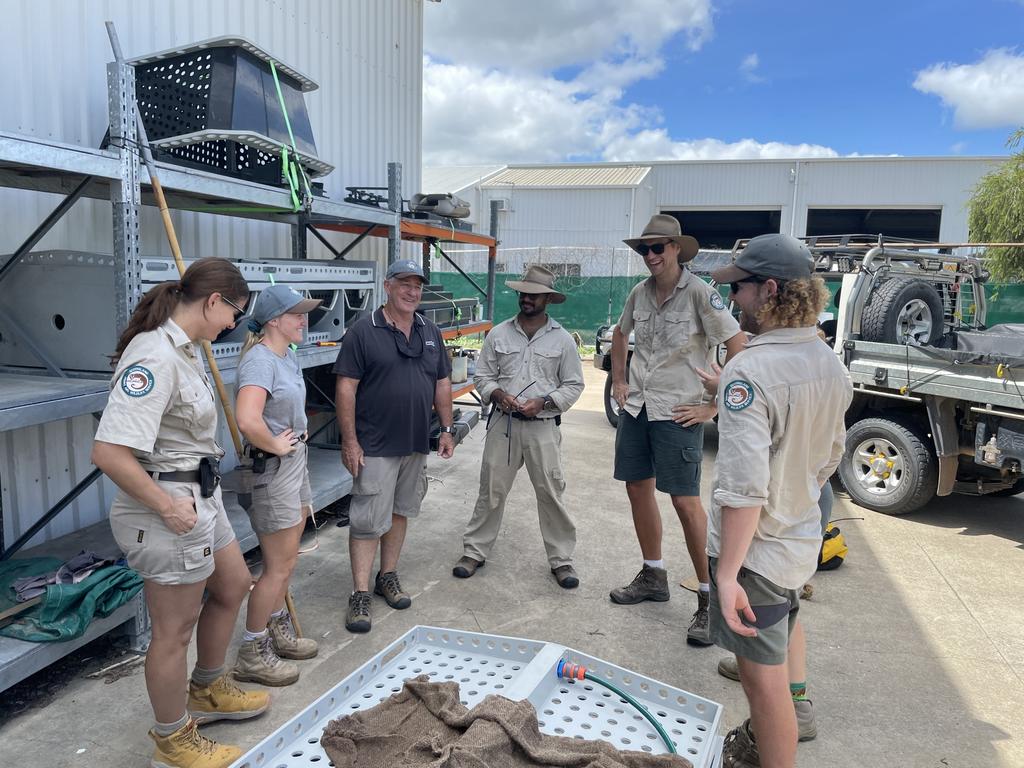
Shock river find sparks croc poaching probe
A suspected attempt to poach a massive 3.5-metre crocodile in Townsville has triggered an investigation after wildlife officers uncovered a baited hook in the Bohle River.
A large, baited hook attached to a pylon was uncovered beneath the Little Bohle Bridge on Monday while officers were investigating reports of large croc in the river spotted near residential areas and a turf farm.
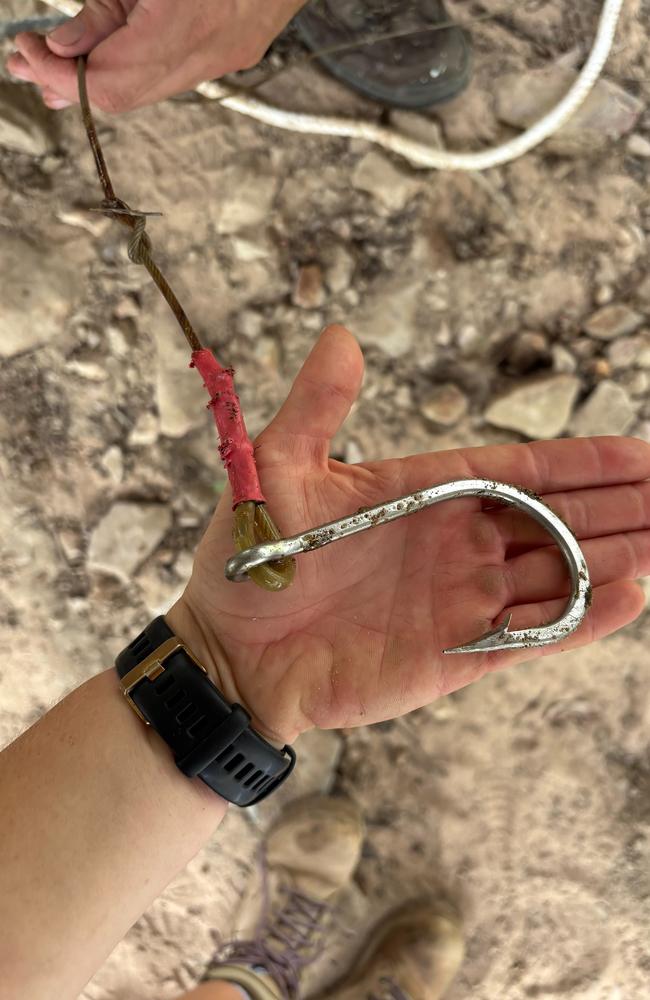
Tony Frisby, senior wildlife officer from the Department of the Environment, Tourism, Science, and Innovation (DETSI), said they “strongly believe” that someone set the baited hook in a deliberate attempt to capture and kill the crocodile.
“If the crocodile had been hooked, it could’ve drowned or died with the hook lodged inside its throat or stomach,” he said.
“We conducted further searches of the river for similar devices and didn’t find any.
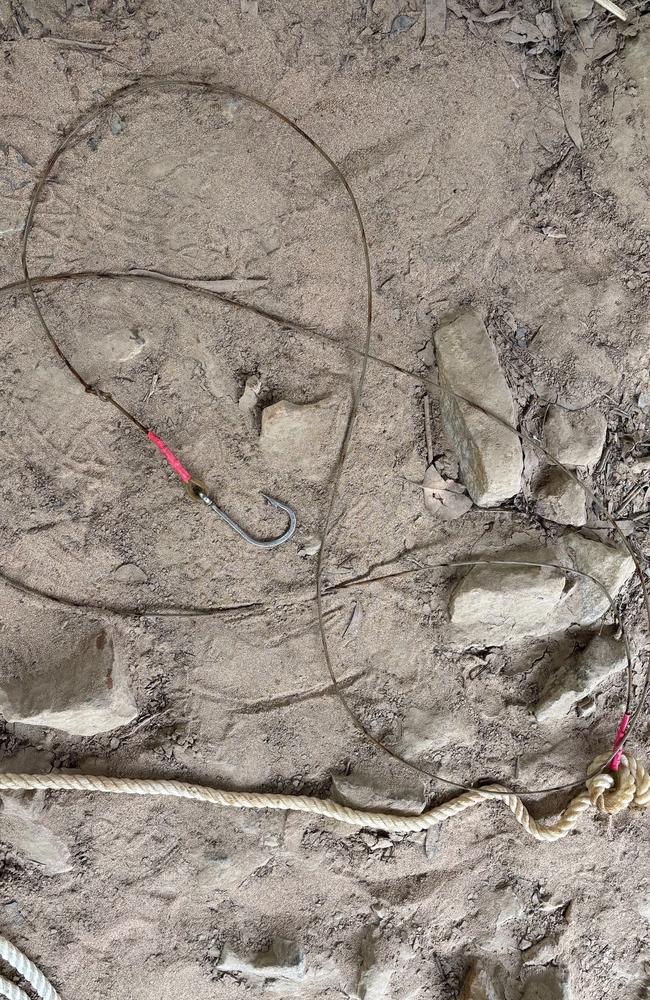
“We don’t tolerate poaching or acts of animal cruelty like this, and anyone with information about the setting of this baited hook and line is urged to contact the department.”
He said crocodiles are protected under the Nature Conservation Act 1992 and the maximum penalty for the deliberately harm or killing of a crocodile is $36,293.
“Being caught in possession of a deceased crocodile or parts of a deceased crocodile, such as a skull, skin or claws is also an offence,” he said.
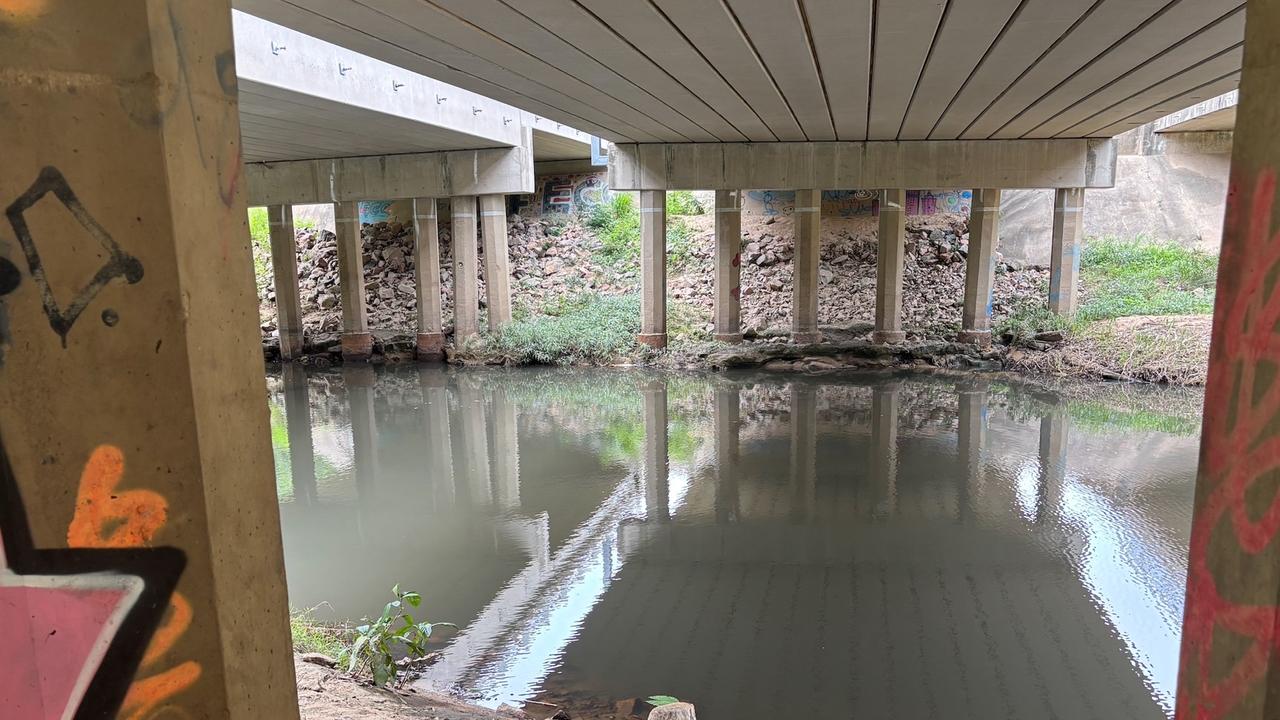
Anyone with information about the hook, any deceased crocodiles, or with information about people in possession of crocodile skulls or other body parts, should call 1300 130 372 or contact the Queensland Police Service. Information can be provided anonymously.
Originally published as Bohle River crocodile: Salty captured, removed in Townsville river






